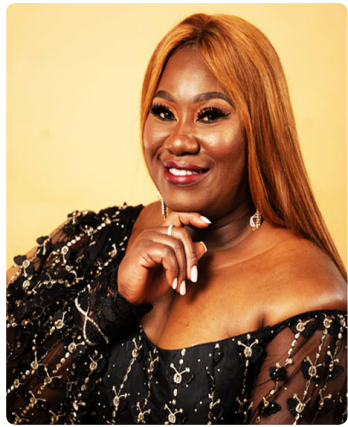Each passing day brings to mind the fact that if right step is taken in the right direction, all perceived unfavourable impediments (real and imagined), and level playing ground provided, Nigerian women are laced with capacity to participate and favourably compete with their male counterpart in the Nigerian political space and field.

This profound assertion was made recently by Agbor, Delta state born, but United States of America based Dr. Philomena Onoyona, President of the Hope Restored Advocacy Organization, a Non-Governmental Organization (NGO) headquartered in the United States, while speaking at an international seminar held in Texas, USA, where she among other remarks called for electoral reforms, such as proportional representation, to create a more inclusive political space for Nigerian women.
As a background, Dr. Onoyona is a graduate from Kennesaw State University, USA, with a Bachelor’s Degree in English, followed by a Master’s Degree in Social Work from Clark Atlanta University, USA. She also holds a Master’s Degree in Philosophy from the prestigious Walden University and a Ph.D. in Human and Social Services from the same institution. Additionally, Dr. Onoyona earned a Diploma in Theology from The Greater Commission Center for Ministry U.S.A.
Professionally, Dr. Onoyona is a social worker and currently serves as the Vice President of Allwell Healthcare of Georgia, United States, an organization dedicated to caring for the Elderly in the society. As a social worker, she has worked in a variety of settings, including schools, hospitals, communities, courts, and government agencies. She assesses the needs of clients, provides resources, and advocates for social and economic justice in diverse communities. Furthermore, Dr. Onoyona is a skilled counselor.
Speaking at the event, Dr Onoyona highlighted the challenges facing women in both elective and appointed positions, revealing that less than 7 percent of Nigerian women participate in politics. “Women in Nigeria are highly active in economic, civil, and governmental sectors, but this involvement must be further encouraged, especially in the national assembly,”
While she emphasized that the journey to achieving gender parity in Nigerian politics requires dismantling systemic barriers, allowing women to fully showcase their leadership potential and drive progress across the country, the social worker who currently serves as the Vice President of Allwell Healthcare of Georgia, United States, an organization dedicated to caring for the Elderly in the society, stressed that despite various empowerment programs designed to boost female political engagement, financial barriers has remained one of the major obstacles hindering women from running for office.
In addition to raising funds to buy interest forms, organize grassroots campaigns, and sustain election efforts, which she described as incredibly difficult for women, emphasizing the need for more financial support for female candidates, Dr. Onoyona also identified as another key issue, societal perception of women in politics, which often sees women as mere support figures, rather than potential leaders, a mindset that undermines their abilities and discourages their participation.
Even as she observes growing demand among Nigerian women for equal representation, as they believe they possess the skills and competence to contribute meaningfully to governance, the Delta state born academic further urged women organizations to engage men as allies in promoting gender equality in politics and called on communities to support female candidates by volunteering, donating, and raising awareness on social media, and stressed the importance of mentorship, where women in leadership roles help cultivate the next generation of female leaders’.
Viewed broadly, there are in the opinion of this piece, varied and identical reasons that essent qualifies the present advocacy by Dr. Onoyona as historic, exemplary, impressive, legendary and timely.
Beginning with the historical perceptive, it is on good note that as Nigeria moved toward independence in the 1950s, women continued to play crucial roles in political movements. Women organizations, such as the Nigerian Women’s Union and the Nigerian Women’s Party, advocated for greater female participation in politics. Despite these efforts, the immediate post-independence period saw limited political representation for women.
Take as an illustration, in 1960, when Nigeria gained independence, it was reported that only a few women held political offices. Marginalization continued despite the contributions of women like Margaret Ekpo, a politician and women’s rights activist who was one of the first women elected to the Eastern Regional House of Assembly.
Away from civil rule to the military era which lasted between 1966-1999, the struggle against marginalisation continued as military coups and subsequent military rule reportedly posed significant challenges to women’s political advancement. During these years, political spaces were predominantly male-dominated, and women’s participation in politics was severely restricted.
Reports, however , indicated that the return to civilian rule in 1999, marked a new era for women’s political participation in Nigeria. The new democratic framework provided more opportunities for women to engage in politics. The adoption of the National Gender Policy in 2006 aimed to promote gender equality and women’s empowerment in all sectors. But this has not in any practical sense erased the pang of marginalization of women in Nigeria’s political space.
Essentially, beyond its relevance in Nigeria political history, Dr. Onoyona’s present advocacy is also relevant at the global stage as it aligns completely, and in tandem with what development professionals promote.
Separate from the belief that women’s equal participation and leadership in political and public life are essential to achieving the Sustainable Development Goals by 2030, Onoyona’ latest advocacy in my view, becomes more appreciated when one remembers that available data by the United Nations show that women are underrepresented at all levels of decision-making worldwide and that achieving gender parity in political life is far off.
To further drive home this argument, a study result released in June this year, revealed that as of June 1st, 2024, there are 27 countries where 28 women serve as Heads of State and/or Government. At the current rate, gender equality in the highest positions of power will not be reached for another 130 years. Just 18 countries, the study added, have a woman Head of State, and 15 countries have a woman Head of Government.
Again, data compiled by UN Women also show that women represent 23.3 per cent of Cabinet members heading Ministries, leading a policy area as of 1 January 2024. There are only 15 countries in which women hold 50 per cent or more of the positions of Cabinet Ministers leading policy areas. The five most commonly held portfolios by women Cabinet Ministers are Women and gender equality, followed by Family and children affairs, Social inclusion and development, Social protection and social security, and Indigenous and minority affairs’’.
Similar to what Dr. Onoyona advocated, the referenced report went further to say that only 26.9 per cent of parliamentarians in single or lower houses are women, up from 11 per cent in 1995. Only six countries have 50 per cent or more women in parliament, in single or lower houses: Rwanda (61 per cent), Cuba (56 per cent), Nicaragua (54 per cent), Andorra (50 per cent), Mexico (50 per cent), New Zealand (50 per cent), and the United Arab Emirates (50 per cent). A further 22 countries have reached or surpassed 40 per cent, including 13 countries in Europe, five in Africa, four in Latin America and the Caribbean, and one in Asia-Pacific. Globally, there are 21 States in which women account for less than 10 per cent of parliamentarians in single or lower houses, including two lower chambers with no women at all.
At the current rate of progress, gender parity in national legislative bodies will not be achieved before 2063. Women hold 36 per cent of parliamentary seats in Latin America and the Caribbean and make up 33 per cent of parliamentarians in Europe and Northern America. In sub-Saharan Africa, there are 27 per cent of women legislators, followed by Eastern and South-Eastern Asia with 23 per cent, Oceania with 20 per cent, Central and Southern Asia and Northern Africa and Western Asia where, in both regions, women make up 18 percent of women Members of Parliament.
In a related development, data from 141 countries show that women constitute more than 3 million (35.5 per cent) of elected members in local deliberative bodies. Only three countries have reached 50 per cent, and an additional 22 countries have more than 40 per cent women in local government. Regional variations are also noted for women’s representation in local deliberative bodies, as of January 2023: Central and Southern Asia, 41 per cent; Europe and Northern America, 37 per cent; Oceania, 32 per cent; Eastern and South-Eastern Asia, 31 per cent; Latin America and the Caribbean, 27 per cent; sub-Saharan Africa, 25 per cent; Western Asia and Northern Africa, 20 per cent.
“Balanced political participation and power-sharing between women and men in decision-making is the internationally agreed target set in the Beijing Declaration and Platform for Action. While most countries in the world have not achieved gender parity, gender quotas have substantially contributed to progress over the years. In countries with legislated candidate quotas, women representation is five percentage points and seven percentage points higher in parliaments and local government, respectively, compared to countries without such legislation.”
In fact, there is established and growing evidence that women leadership in political decision-making processes improves them. For example, research on panchayats (local councils) in India discovered that the number of drinking water projects in areas with women-led councils was 62 per cent higher than in those with men-led councils. In Norway, a direct casual relationship between the presence of women in municipal councils and childcare coverage was found. Women demonstrate political leadership by working across party lines through parliamentary women’s caucuses—even in the most politically combative environments—and by championing issues of gender equality, such as the elimination of gender-based violence, parental leave and childcare, pensions, gender-equality laws, and electoral reform.
For me, Dr. Philomena Nkem Onoyona’s current political advocacy and reawakening remains a vital message that Nigerian women whether in partisan politics or not must not be allowed to go with political winds.


